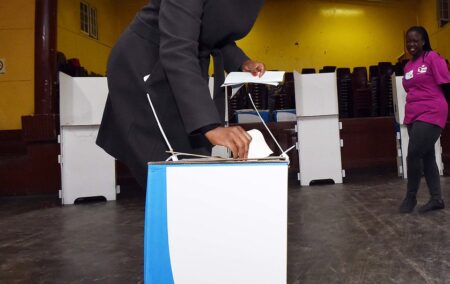Last week Mmusi Maimane, the former leader of the Democratic Alliance (DA) and now Chief Activist of the One South Africa movement, announced that his organisation would be supporting candidates in this year’s scheduled local government elections (LGE).
But can independents make a difference in the upcoming election?
Maimane has called for potential independent candidates to apply to his organisation for support. Successful applicants will receive training in One South Africa’s ‘School of Governance’ to be ‘effective and accountable statesmen and stateswomen’. According to Maimane, independent candidates have traditionally not fared well in elections due to a lack of resources and campaign support, among other factors. However, one resource One South Africa will not be providing is financial.
But will Maimane’s support be enough to see a breakthrough by independents in the upcoming LGE (assuming it goes ahead as scheduled)?
Generally, when independents have fared well in local government elections this has been because those standing have an established link to the community. And these links have often originated in the candidate’s having a link with an established political party, generally the African National Congress (ANC).
Consider the performance of independents in eThekwini in 2016. In that year independents won four of the 110 ward seats up for grabs, and collectively independents won 8% of the ward vote. If they had been a cohesive bloc, they would have been the third biggest entity in the city council, behind only the ANC and DA, and with more support than the Inkatha Freedom Party (IFP) and Economic Freedom Fighters (EFF).
However, most of the independent candidates who won seats or performed well in the city had links to the ANC, either being former councillors or having some other close association with the party.
Similar pattern
There has been a similar pattern in other municipalities when independents or what ostensibly seems to be a new political party emerge. Often these independents or new movements are simply disgruntled former ANC members who have been expelled or have left the party of their own volition. The Bushbuckridge Residents’ Association (BRA), which performed well in that municipality in 2011 and 2016, coming second to the ANC in both elections (before subsequently imploding), was founded by former members of the governing party.
It is a similar story with the Forum for Service Delivery (F4SD). Although the party claimed it had no links to the ANC, it was founded by disgruntled former councillors in North West. It did well enough in the 2016 LGE to win four of Rustenburg’s 89 seats and one of the 28 seats available in the Bojanala District Municipality (which Rustenburg falls under). The party seems to have lost its early momentum and seems to be fading from the scene, just like the BRA.
Independents struggle
Further evidence of how independents struggle in South Africa emerges from the recent by-elections in November and December last year.
In the nearly 100 by-elections held in November not one independent won a ward. And it was a similar story in the December by-elections. Of the more than 20 by-elections held then, the only surprise was the Land Party snatching a ward away from the ANC in Overstrand in the Western Cape.
And significant moves in South African voting patterns have historically been uncommon. Post-apartheid, the only places voting patterns have changed substantially have been in KwaZulu-Natal and the Western Cape. In KwaZulu-Natal we saw a large number of voters shift their allegiance from the IFP to the ANC. In the 1990s the IFP was the biggest party in that province, beating the ANC to first place in the two elections held in that decade. A combination of a moribund IFP and the growing influence of Zulus in the ANC saw the IFP’s vote shrink to barely 10% in 2014 (before something of a recovery in 2019, when the party won nearly 20% of the vote in the province).
The Western Cape saw something similar, with the ANC being the largest party in the province in the first decade of this century, reaching a high-water mark of 45% in 2004. Subsequently, the ANC vote has hemorrhaged, with the party winning barely a quarter of the vote in 2019. The DA has dominated provincial politics there since 2009, winning that election and the two subsequent provincial elections.
Significant shift
The rise of the EFF could herald a significant shift, but this has not occurred yet. While the party has done well in attracting voters from the ANC’s left flank, it has still not secured the numbers it needs to challenge the Grand Old Party of post-apartheid South African politics in any significant way, whether provincially or nationally.
And what must not be forgotten is that the EFF is offspring of the ANC, not a new movement. It is rather a personal vehicle for its leader, former ANC stalwart Julius Malema, and probably a useful tool for the ANC to test the waters and gauge the public appetite for more radical policies. A vote for the EFF is, in many ways, still a vote for the ANC.
Given the evidence above, it seems unlikely that independents will challenge the status quo in any significant way, even with support from Maimane and OSA.
That said, a black swan could well visit South African politics soon. Patience with the ANC is running out and the party’s liberation capital is almost completely spent. It remains to be seen whether a party (either an existing one or one yet to be formed) can benefit from the ANC’s clear inability to govern South Africa for the benefit for all who live here. The LGE later this year will likely not be the moment when we see a fundamental shift in South African politics, but that day is probably not far off, and may be closer than many of us think.
If you like what you have just read, support the Daily Friend

